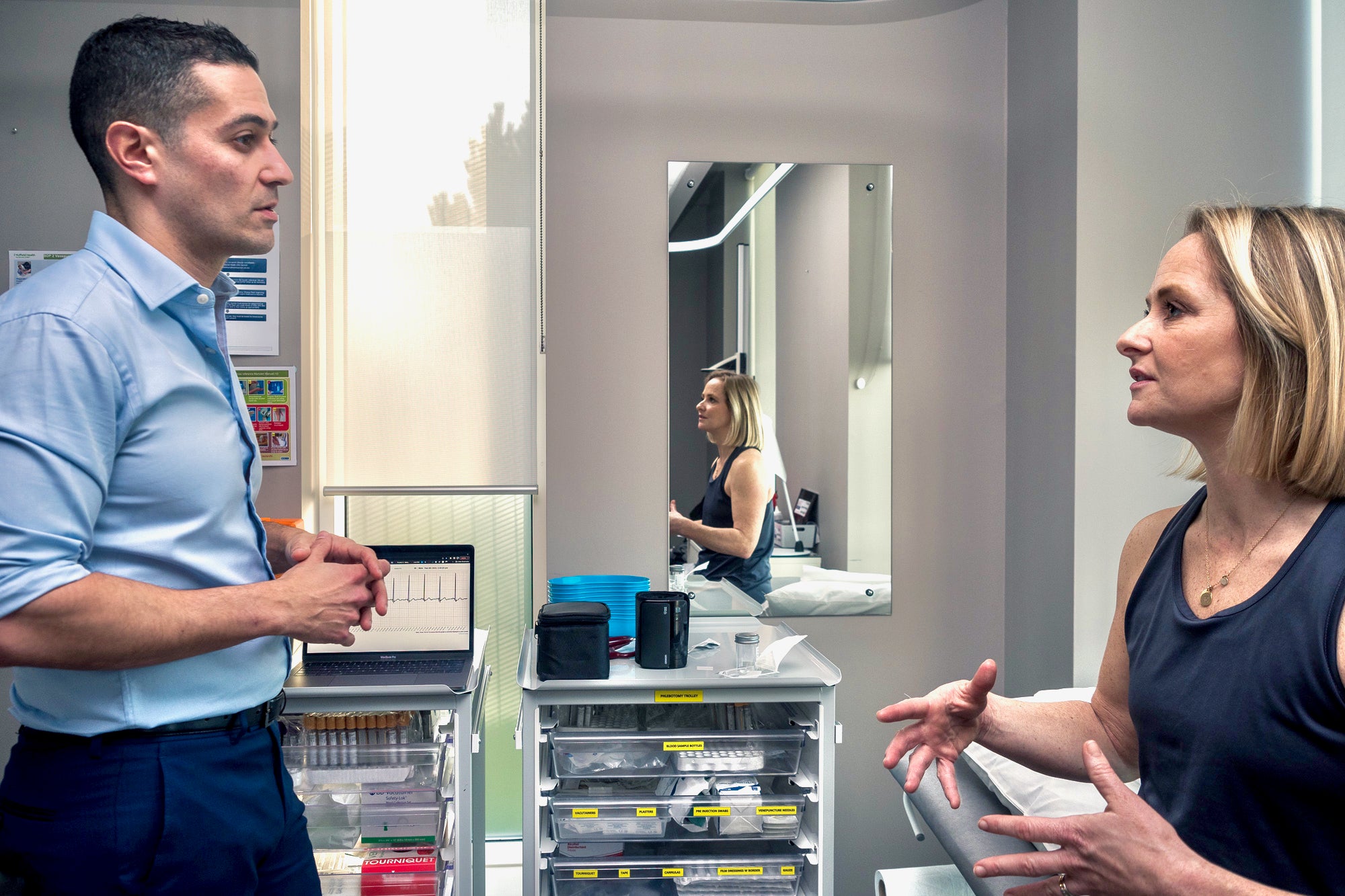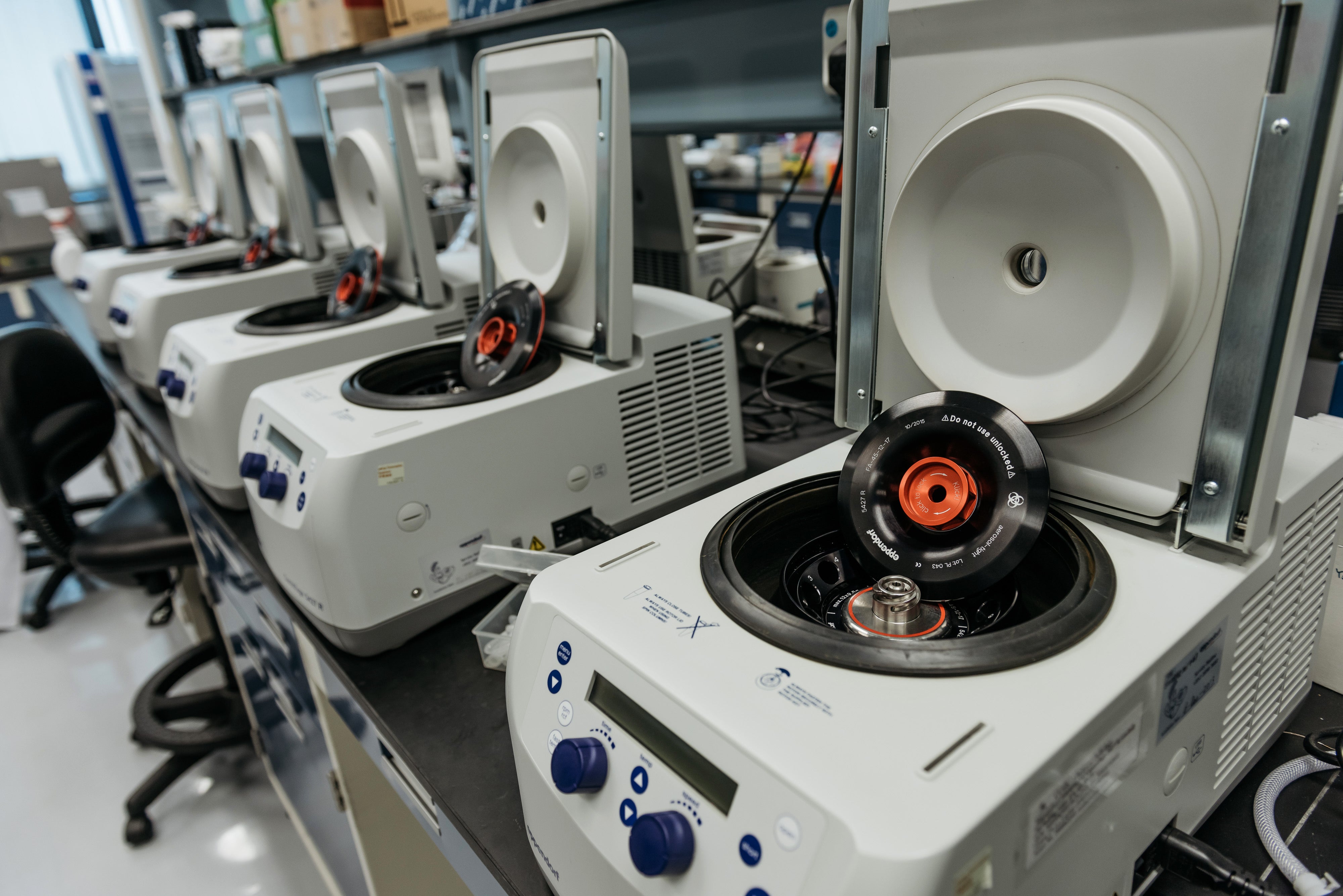What are the ‘silent cancers’ that don’t have any symptoms?
As Kate, The Princess of Wales, reveals that her cancer diagnosis was discovered after she underwent abdominal surgery, Anna Magee looks at the subtle symptoms of cancer that are often mistaken for other things

Lumps. Blood in your stools. Sudden weight loss. Most people know the big signs of cancer. But there are many common cancers that come with no, unusual, or lesser-known symptoms.
With nearly one in two of us set to experience cancer at some point in our lives, it’s helpful to be able to spot not only the symptoms of cancer that shout “Get checked now!” but also those that whisper, “This isn’t right, see your GP.”
It has now been revealed that, after the Princess of Wales had major abdominal surgery for a condition thought to be non-cancerous, tests after the operation found that cancer had been present. Similarly, it was revealed in February that King Charles has a form of cancer, identified after he was admitted to hospital to treat an enlarged prostate. Both Kate and Charles are now in the early stages of treatment for their illness.
In fact, it’s not uncommon for people to go into hospital in a similar vein – with a benign condition – and come out with a cancer diagnosis.
That’s because some cancers present with vague symptoms that are often mistaken for getting older or the effects of everyday life – such as ongoing fatigue – and people don’t think to report them, explains Dr Mieke Van Hemelrijck, professor of cancer epidemiology at King’s College London. “The symptoms could be a lot of other diseases, but there’s a small chance they might be cancer,” she explains.
Currently, when a GP suspects cancer, they will get a patient onto an urgent two-week pathway for investigations on the NHS. But when symptoms are vague, that’s more difficult, explains Dr Van Hemelrijck. “That’s where rapid diagnostic centres [RDCs] come in,” says the professor, who is based at Guy’s and St Thomas’ Hospital.
“So for non-specific symptoms like sudden weight loss or extreme fatigue that won’t go, you can report to your GP and ask to be referred to a rapid diagnostic centre.” The good news is that the symptoms you report are unlikely to be cancer – just 7 per cent of those referred to Dr Van Hemelrijck’s clinic turn out to be cancerous. But for those that do, early detection is vital.
How a cancer develops
The cells everywhere in our bodies are always replicating. But during this replication process mistakes can occur, leading to unregulated growth, explains Dr Philip Borg, a consultant interventional radiologist who treats cancer patients at the Christie NHS Foundation Trust.
“Most of the time, your body can detect these mistakes and eliminate rogue cells. But when it doesn’t, cancer can grow,” he says. This doesn’t happen overnight – the process of cancer growth in your body can happen over 10 years or more, before you show any symptoms. This explains how cancers can be found during investigations for something else. “In the early stages, they may show early or non-specific symptoms and reporting these is important so we can catch it in its early stages.”
Why some cancers may not show symptoms
“There are often patients who come in with various ailments or abnormal blood tests, and then a scan is done which shows a cancer that’s completely unrelated to the first condition they are in for,” says Dr Jason Chow, a consultant oncologist at Bupa’s Cromwell Hospital. “Usually in that circumstance, the cancers are perhaps in an earlier stage.”

Cancers located in the more internal organs tend to be harder to detect as they may not come with lumps. “If something appears on the skin, or in an organ that’s near or on the surface of the body like the breasts or testes, it’s easier to spot lumps,” he explains. “It gets harder to detect cancers in the more hidden internal organs, like the ovaries, lungs or pancreas.”
Five common cancers with vague or silent symptoms
Gastrointestinal (GI) cancers
These include esophageal, gastric, liver, bile duct, pancreatic and bowel cancer (the fourth most common in the UK). “Most people know to look for blood in their stools, but GI cancers can be quite insidious and come with other vague symptoms,” says Dr Chow. “There are other symptoms people need to be aware of and report to their doctors.” For bowel cancer alone, 90 per cent of people will survive for five years or more if it’s diagnosed in the early stages. This falls to one in 10 in the later stages.
Signs to look for: unexplained weight loss, nausea or vomiting, persistent abdominal pain or discomfort, changes in bowel habits, persistent reflux, difficulty or pain in swallowing as well as jaundice. “The chances are none of that is cancer, but if you have any of these symptoms and they’re getting worse and not better, speak to your doctor,” says Dr Chow.
Ovarian cancer
Known as “the silent killer”, ovarian cancer’s symptoms can mimic other conditions like irritable bowel syndrome (IBS) or even menopause, so it’s often misdiagnosed. Nearly 7,000 women a year are diagnosed with it, and if it’s spotted early 70 per cent will survive compared to just 15 per cent when the disease has progressed. It’s most common in women after menopause.

Signs to look for: abdominal pain, persistent bloating or tummy swelling, feeling full quickly after eating, no appetite, feeling tired all the time, sickness, urgent need to pee or peeing more often, vaginal bleeding after menopause, weight loss without trying and back pain.
Lung cancer
Although it’s the most common cause of cancer death in the UK, when lung cancer is caught early, six in 10 people will survive for five years or more. Heavily linked to lifestyle factors like smoking, 79 per cent of cases are preventable.
Signs to look for: A new cough or having a cough most of the time, persistent or worsening breathlessness, coughing up phlegm with blood in it, chest or shoulder pain, chest infections that keep coming back or one that doesn’t get better, losing your appetite, feeling tired all the time, night sweats or fever, weight loss.
Brain cancer
Each year about 5,800 people are diagnosed with a malignant brain tumour in the UK. “Brain tumours can be quite insidious and may be diagnosed accidentally,” says Dr Chow. “But at some point people will get symptoms.” According to Cancer Research UK, the early signs of a brain tumour are often caused by other conditions, but it’s important to see your doctors if you have any of them.

Signs to look for: headaches, seizures, limb weakness, stroke-like signs, feeling or being sick, drowsiness or loss of consciousness, double, blurred or tunnel vision or seeing floating shapes as well as personality or behaviour changes. The latter depends on where in the brain the tumour is located and may include loss of smell, hearing voices in your head or problems reading and writing.
Bladder
“Bladder cancer is the tenth most common cancer worldwide, yet awareness of it is very low,” says Dr Van Hemelrijck. “Its symptoms are usually vague, so early signs are not always reported as people don’t know what to look for.” In the UK, one in 130 females and one in 55 males will be diagnosed with bladder cancer in their lifetimes and up to half of all cases are linked to smoking. “Many of the symptoms of bladder cancer, like increased urination, are often mistaken for just getting older,” says Dr Van Hemelrijck.
Signs to look for: blood in your urine, recurrent urinary infections, pain when you need to pee, high frequency of urination, incontinence, pain in your back, lower tummy or bones, feeling tired or unwell, weight loss for no reason.
The single blood test that could detect cancer
Still in its early stages, a revolutionary new diagnostic tool could one day detect the presence of cancer before any symptoms occur by testing your blood. Currently in clinical trials, it’s known as liquid biopsy and is a blood test that analyses circulating tumour DNA, proteins or other markers released by tumours into the bloodstream.

While liquid biopsies potentially offer non-invasive cancer detection, their reliability and accuracy can vary. Plus, as some cancers will never show symptoms or grow very slowly, they could place unnecessary stress on patients or lead to treatment for something that might never have caused a problem.
“We need to balance the benefits of early detection with the potential downsides of causing unnecessary anxiety,” says Dr Borg, who is working on the clinical trials for the test. Still, it’s a promising improvement in the field of what’s called the new “precision medicine” and once shown to save lives, could change the face of how cancer is diagnosed.
Red flag symptoms of cancer to report to your doctor
Half of adults with red-flag cancer symptoms wait six months or more before contacting a GP. But reporting any of the symptoms below to your doctor is essential – the chances are they won’t be cancer, but if they are, early detection can make all the difference to survival.
– Any unexplained lump anywhere especially if it’s increasing in size (keep an eye on testicles, breasts, beck, underarm, neck and groin)
– Unexplained weight loss
– Changes in your bowel habits, including diarrhoea, constipation or loose, pale or greasy stools for no reason or a feeling of not having fully emptied your bowel after the loo
– Pain in your stomach or anus
– Bleeding from your bottom, when you cough or in your vomit
– Persistent bloating that lasts three weeks or more
– Blood in your stools or urine
– A mole that has changed or starts itching, crusting, flaking or bleeding
– A mouth ulcer that won’t go away
– Persistent fatigue
– Tummy or back pain if you’re not sure what’s causing it. This includes dull, permanent pain or sharp pain that comes and goes
– Indigestion, heartburn or acid reflux more than usual
– Itchy or yellow skin (whites of the eyes may also be yellow)
– Unexplained anaemia
– Vaginal bleeding after menopause or between periods
– Night sweats or fever (not menopause related)
Subscribe to Independent Premium to bookmark this article
Want to bookmark your favourite articles and stories to read or reference later? Start your Independent Premium subscription today.






Join our commenting forum
Join thought-provoking conversations, follow other Independent readers and see their replies
Comments